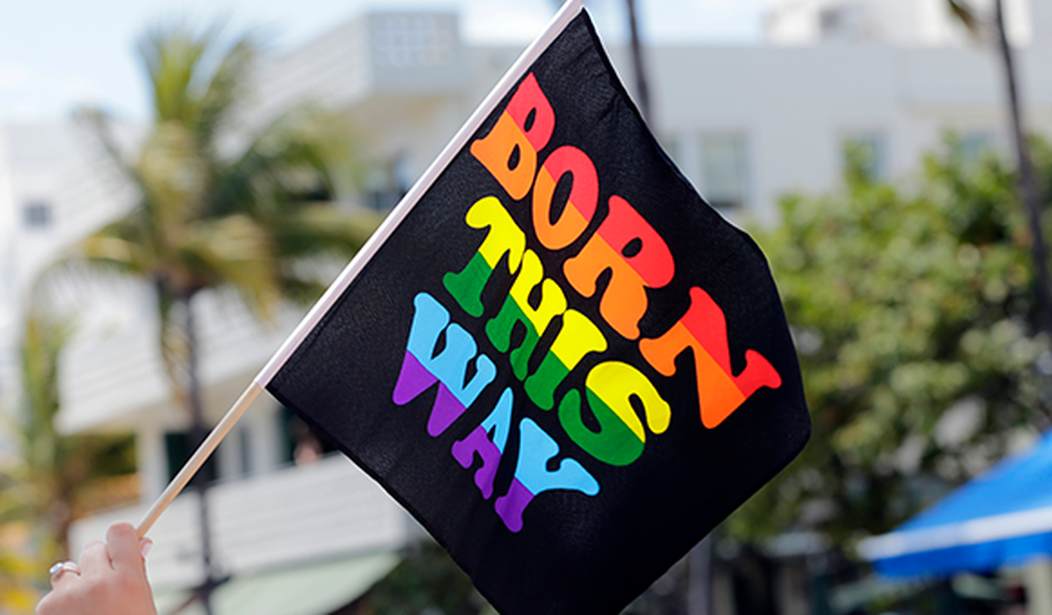Kindergarten has changed quite a bit, and that appears particularly true in Northwestern Oregon.
On Wednesday, City Journal’s Christopher Rufo shared lesson plans from Portland Public Schools (PPS). For kindergarteners, the district delivers information on sex and the body.
“Welcome, scientists!” the slides begin. A penis and scrotum are shown.
Science:
A lot of times people with these parts are boys, but any gender and kid can have any type of body.
Per PPS, the same goes for “people with” vaginas.
Next come naked cartoons. There are two types of human beings:
- Person With a Penis (circumcised or non-)
- Person With a Vulva
Teachers also get guidance:
Make sure to use the wording written on the slides, as it was very intentional and is gender inclusive for all identities. The slides are text-heavy to help teachers with language. This lesson was written by trans people. This lesson is designed for kindergarten through 3rd grade classes and is developmentally appropriate.
“Hello,” an illustrated name tag announces. “My name is _____, and my pronouns are _____.”
Portland busts the myth that “Names can never hurt me”:
When someone tells us a name they want to be called, we should use that name for them! That helps them feel safe…
And children are right, whereas parents may be wrong:
Only you can know what your gender is. Even if other people don’t understand, you are the only person who knows you the best. … Any gender can look or act any way they want.
A book called Jacob’s New Dress is drawn.
[S]ometimes [what doctors and adults say] isn’t true! Because we can’t ask babies what their gender is since they can’t talk. 😀
Bottom line:
Any gender can have any body.
Children are told to express themselves as they wish — with a “haircut, clothes, and makeup.”
As for pronouns, “ze/zir” is offered — in addition to “ones you make up.”
Creating one’s own pronouns might be especially important, because the binary sexual system was created by Caucasians. Perhaps you thought ancient nonwhite books — the Bible among them — recognized a rule of men and women.
Wrong:
When white European people colonized different places, they brought their own ideas about gender and sexuality. When the United States was colonized by white settlers, their views around gender were forced upon the people already living here. Hundreds of years later, how we think and talk about gender are still impacted by this shift.
To be clear:
Gender is Colonized. Gender and sexuality diversity have existed since people have been on Earth. The different words that people use to describe themselves have changed over time. White colonizers tried to erase many cultures, including what some might now call “queer” or “trans” people, but these cultures already had words for, cultures including, and ways of thinking about gender and sexuality. This lesson includes words that are products of colonization. Other cultures around the world, especially Black, Indigenous, and Brown cultures and people, view gender in different ways and use different words. This lesson centers on United States language of the past 20 years.
For third graders, Portland covers pride flags, pride marches, and “LGBTQIA2S+.”
Everything Is Socially Constructed and Related!
- Assigned sex
- Gender identity
- Gender expression
- Sexuality
“Straight,” “cisgender,” and “heteronomative” are listed under “Dominant Culture and Oppression.”
Pernicious power is addressed:
Transphobia is the idea that cultures, systems, people, and beliefs that oppress anyone who isn’t cisgender. This means that transgender people have less privilege and that cisgender people have more power and visibility in all aspects of society. Transphobic acts and ideas can be intentional and cruel or unintentional and still harmful.
And for socially-conscious kiddos:
[Queer culture] still has oppression for BIPOC, poor, disabled, and other folx who are LGBTQIA+ AND another nondominant identity. Queer culture has racism, sexism, classism, etc. and is still working to help liberate ALL people.
It’s a lot for small children to process, and radically different than everything that’s existed until now. Previously, tiny tots learned things such as counting and reading; parents made the calls where haircuts, makeup and clothes were concerned; and looking at genitally-correct cartoons wasn’t something for which five-year-olds were known.
The myth of stereotypes is emphasized by PPS; tykes are even presented with problems to solve:
Your friend Dong wants to join ballet class, but he’s worried that other kids will tease him.
“There are many ways to be a boy, a girl, both or neither,” the tutorial touts.
A few questions arguably arise: If gender is a social construct, why is PPS teaching about gender? If “boy” and “girl” have no meaning, isn’t it meaningless to talk of boys and girls? If there are many ways to be a boy or girl, how can there be such a thing as “neither” or “both”?
It’s unprecedentedly sophisticated; hopefully, people still at the booger-eating age will figure it out.
Evidently, they’ll have to:
You have LGBTQIA2S+
- Friends
- Classmates
- Family members
- Family’s of friends
- Teachers
- Teammates
Every single person has queer or trans people in their life, whether or not they know it! Sometimes the people we know just aren’t out yet or sometimes you haven’t talked to them about their gender or sexuality.
It’s a new day, indeed.
-ALEX
See more content from me:
Trump Calls CNN on the Carpet, Will Force ‘Big Lie’ Retraction or It Should Ready Its Lawyers
The Great Bo Jackson Visits Uvalde, Proves He’s a Hero Worth Keeping
In the Beginning, God Created ‘Hir’ and ‘Zir’: Christian University Converts to Pronounism
Find all my RedState work here.
Thank you for reading! Please sound off in the Comments section below.













Join the conversation as a VIP Member